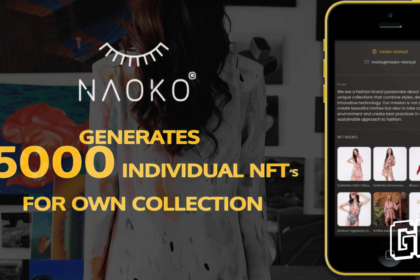With the rise of cryptocurrencies and decentralized applications, many game developers and enthusiasts have started to explore the integration of blockchain technology into gaming experiences.
In this article, we delve into the question: Do games need blockchain? We’ll explore the potential benefits and applications of blockchain in gaming, and how it can enhance player experiences and revolutionize the industry.
Enhancing Ownership and Asset Management
One of the key advantages of blockchain technology is its ability to provide players with true ownership of in-game assets. Traditional games often operate on centralized servers, giving game developers complete control over the virtual items players acquire. However, by leveraging blockchain, game developers can create decentralized ecosystems where players have actual ownership and control over their virtual possessions.
Blockchain-based gaming platforms utilize non-fungible tokens (NFTs) to represent unique in-game items or characters. These NFTs are stored on the blockchain, ensuring their scarcity and authenticity. By implementing blockchain, players can freely trade or sell their digital assets on decentralized marketplaces, fostering a vibrant player-driven economy.
Transparency and Fairness
Another compelling aspect of blockchain in gaming is the potential for increased transparency and fairness. Blockchain technology enables the creation of smart contracts, which are self-executing agreements with predefined rules. These contracts can automate various aspects of gameplay, ensuring fairness and eliminating the need for intermediaries.
Through smart contracts, game developers can establish transparent reward systems, provable odds, and verifiable gameplay mechanics. This level of transparency instills trust in players, as they can verify the integrity of the game’s algorithms and mechanics. Moreover, blockchain-based games can prevent cheating and hacking, as the decentralized nature of the technology makes it more resilient to such malicious activities.
Cross-Platform Interoperability
The gaming industry has long struggled with the lack of interoperability between different gaming platforms. Players often find themselves limited to specific devices or ecosystems, hindering their ability to enjoy games across multiple platforms seamlessly. However, blockchain technology can address this challenge by enabling cross-platform interoperability.
By leveraging blockchain, developers can create games that transcend individual platforms and allow players to use their in-game assets across various games and platforms. This interoperability not only enhances the gaming experience but also promotes player engagement and retention. Imagine unlocking a rare weapon in one game and being able to use it in another, seamlessly transferring your progress and items. Blockchain technology has the potential to revolutionize how players interact with gaming ecosystems.
Rewarding Player Contributions
Blockchain technology can introduce innovative ways to reward players for their contributions to the gaming community. In traditional gaming, players often invest hours of gameplay and effort without receiving any tangible benefits outside of the game itself. However, with blockchain, game developers can implement reward systems that provide players with real-world value for their in-game achievements.
For instance, blockchain-based games can distribute tokens as rewards for completing quests, achieving high scores, or participating in community events. These tokens can have real-world value and can be traded or redeemed for various goods and services. This incentivizes players to invest more time and effort into the game, fostering a vibrant and engaged player base.
Emerging Trends and Future Possibilities
As blockchain technology continues to evolve, new trends and possibilities are emerging in the gaming industry. We are witnessing the rise of play-to-earn games, where players can generate income by participating in blockchain-based gaming ecosystems. These games enable players to earn valuable tokens or cryptocurrencies by engaging in gameplay, creating a paradigm shift where gaming becomes a viable source of income.
Furthermore, blockchain technology is opening doors to decentralized virtual worlds and metaverses, where players can explore immersive digital environments, interact with other players, and even own virtual land. These virtual worlds have the potential to redefine the concept of gaming, enabling players to create, trade, and monetize their virtual assets and experiences.
- Advertisement -
In conclusion, the integration of blockchain technology into the gaming industry holds immense potential. From enhancing ownership and asset management to providing transparency and fairness, blockchain can revolutionize the gaming experience. Cross-platform interoperability and rewarding player contributions further contribute to the value proposition of blockchain in gaming. As the technology continues to advance, we can expect to see exciting new trends and possibilities that will shape the future of gaming.









